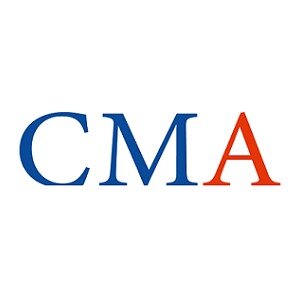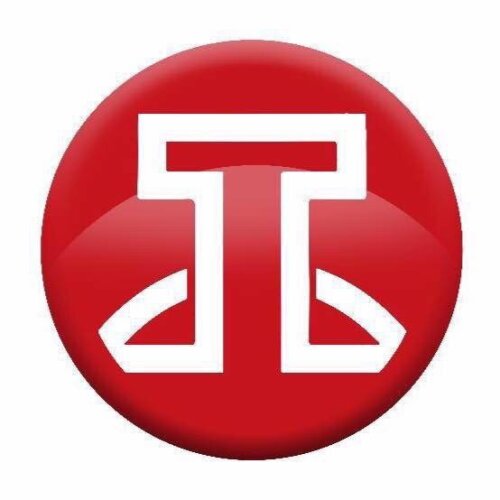Best Merger & Acquisition Lawyers in Haiphong
Share your needs with us, get contacted by law firms.
Free. Takes 2 min.
List of the best lawyers in Haiphong, Vietnam
About Merger & Acquisition Law in Haiphong, Vietnam
Merger & Acquisition (M&A) involves the process of consolidating two or more business entities. It is a complex field of law that encompasses various facets, including corporate law, contract law, labor law, competition law, and securities law. In Haiphong, Vietnam's third largest city, M&A activities are governed by national laws and regulations, which apply uniformly across the country. The city's strategic position as a major industrial and maritime hub makes it an attractive location for such business activities. The legal framework in Vietnam is designed to streamline and oversee the transactional processes, ensuring they meet legal, financial and operational criteria.
Why You May Need a Lawyer
In M&A transactions, legal expertise is crucial for due diligence, structuring deals, negotiating terms, drafting agreements, obtaining approvals from regulatory bodies, and ensuring compliance with local and international laws. Lawyers help in identifying and mitigating risks, addressing employment-related issues, intellectual property transfers, and tax considerations. They play a critical role in dispute resolution that may arise during or post the M&A process. When expanding or consolidating in the competitive market of Haiphong, proper legal representation ensures that the interests of all parties are protected and objectives are met efficiently.
Local Laws Overview
The legal landscape for M&A in Haiphong is predominantly influenced by the national laws of Vietnam, particularly the Law on Enterprises, the Law on Investment, and the Law on Competition. Key aspects include the requirement for M&A transactions to comply with foreign ownership limits, sector-specific conditions, and competition regulations. Mandatory notifications and approval from the Vietnam Competition Authority might be required depending on the size and impact of the transaction. Additionally, there are procedures for the protection of minority shareholders, employees, and creditors. It's also worth noting that Vietnam's legal system has been incorporating international standards to encourage foreign investment, which has a direct impact on M&A transactions in Haiphong.
Frequently Asked Questions
What is the primary regulatory body overseeing M&A in Vietnam?
The primary body that oversees M&A activity in Vietnam is the Ministry of Planning and Investment (MPI), along with the Vietnam Competition and Consumer Authority (VCCA) which is responsible for competition-related issues.
Is there a threshold for notification or approval by competition authorities in Vietnam?
Yes, M&A transactions that reach certain thresholds in terms of combined market share or turnover must be notified to the VCCA for approval to ensure compliance with competition law.
Are there any restrictions on foreign entities acquiring Vietnamese companies?
Foreign investors may face restrictions depending on the sector. Certain industries have caps on foreign ownership, and some acquisitions may require prior approval from relevant ministries.
What are the due diligence requirements for M&A in Vietnam?
Due diligence typically includes legal, financial, commercial, and compliance checks on the target entity to understand its liabilities, contractual obligations, and overall business risks.
Are there specific regulations that protect minority shareholders during an M&A?
Yes, the Law on Enterprises includes provisions to protect minority shareholders, such as rights to access information, voting rights, and rights to object to certain resolutions.
What kind of legal entity is commonly used for businesses in Haiphong?
Businesses in Haiphong, as in the rest of Vietnam, commonly operate as limited liability companies (LLCs) or joint-stock companies (JSCs).
How are employee rights handled in an M&A transaction in Vietnam?
Employees’ rights must be carefully considered during an M&A. This can include the potential transfer of employees, the retention of labour contracts, and the provision of statutory severance in cases of redundancy.
Can M&A transactions be conducted in any business sector in Vietnam?
Most sectors are open to M&A activity, but some, such as telecommunications, banking, and natural resources, might require special approvals. It’s essential to check sector-specific regulations beforehand.
What taxes are applicable to M&A transactions in Vietnam?
M&A transactions might be subject to various taxes, including corporate income tax and capital gains tax. The specifics depend on the transaction structure and the entities involved.
How can disputes arising from M&A transactions be resolved in Haiphong?
Disputes can be resolved through negotiation, mediation, arbitration, or litigation, depending on the dispute resolution mechanisms set forth in the agreements and applicable laws.
Additional Resources
Those seeking further information or assistance relating to M&A can refer to the official website of the Vietnam Ministry of Planning and Investment, the Vietnam Chamber of Commerce and Industry (VCCI), and the Haiphong Economic Zone Authority (HEZA). Professional services firms and law firms specialized in M&A also offer resources and guidance.
Next Steps
If you need legal assistance in M&A, the first step is to seek out a reputable law firm or lawyer with experience in M&A and corporate law, preferably with a strong track record in Haiphong. Initial consultations typically involve discussing your specific needs, the scope of services required, the potential costs, and understanding the timeframe for your transaction. Carefully selecting the right legal support can ensure a smooth and compliant M&A process, catered to the unique needs of your business endeavors in Haiphong.
Lawzana helps you find the best lawyers and law firms in Haiphong through a curated and pre-screened list of qualified legal professionals. Our platform offers rankings and detailed profiles of attorneys and law firms, allowing you to compare based on practice areas, including Merger & Acquisition, experience, and client feedback.
Each profile includes a description of the firm's areas of practice, client reviews, team members and partners, year of establishment, spoken languages, office locations, contact information, social media presence, and any published articles or resources. Most firms on our platform speak English and are experienced in both local and international legal matters.
Get a quote from top-rated law firms in Haiphong, Vietnam — quickly, securely, and without unnecessary hassle.
Disclaimer:
The information provided on this page is for general informational purposes only and does not constitute legal advice. While we strive to ensure the accuracy and relevance of the content, legal information may change over time, and interpretations of the law can vary. You should always consult with a qualified legal professional for advice specific to your situation.
We disclaim all liability for actions taken or not taken based on the content of this page. If you believe any information is incorrect or outdated, please contact us, and we will review and update it where appropriate.












